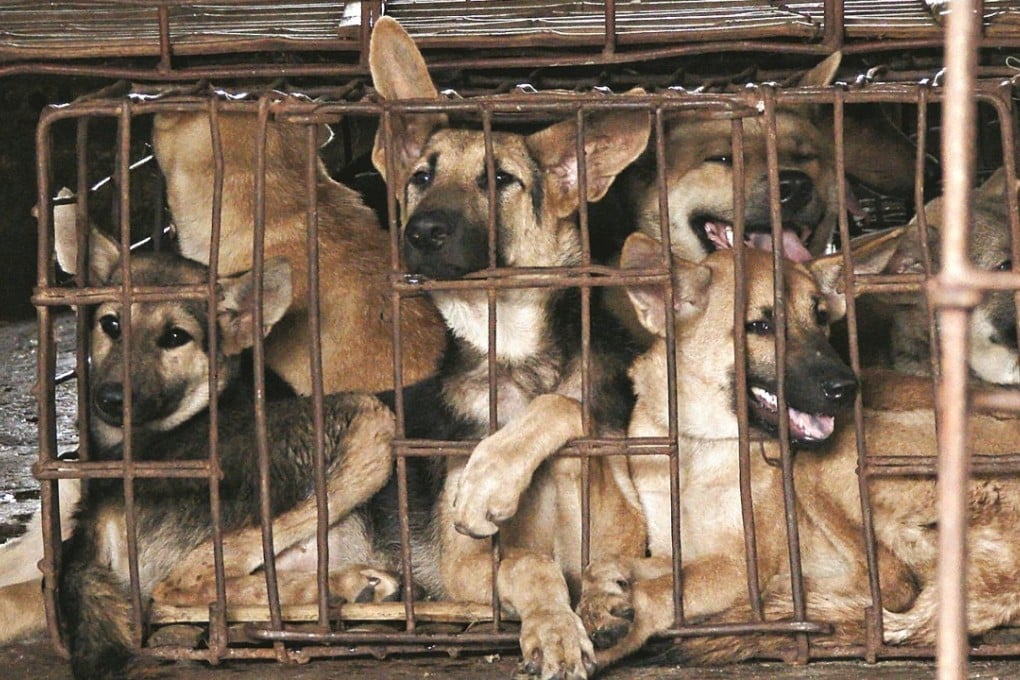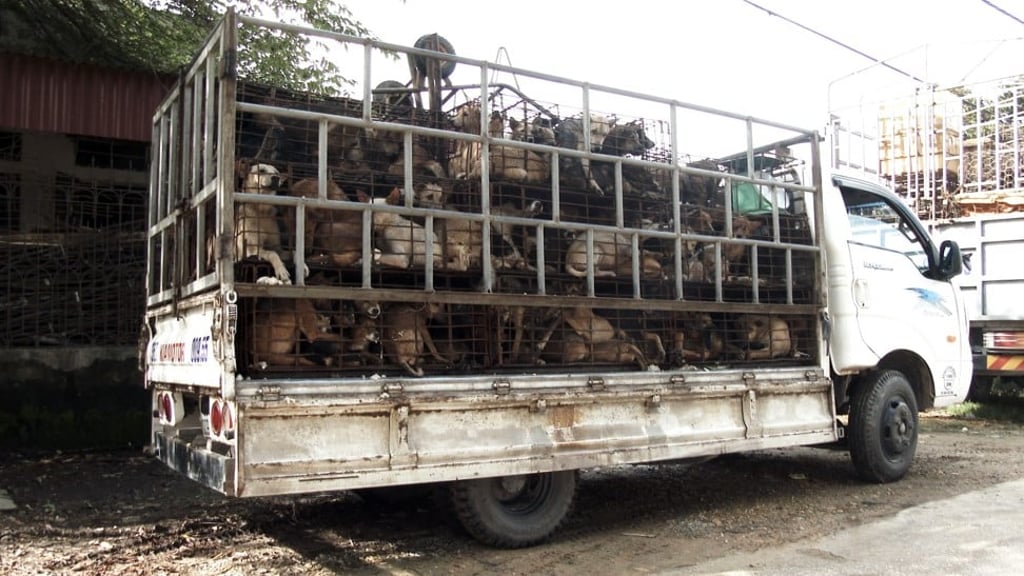Asia’s booming dog meat business and the activists seeking to end a cruel trade
They are flayed and cooked alive, bludgeoned to death, or poisoned – 30 million dogs a year. Demand in Vietnam is growing so fast, smugglers are snatching pets for slaughter. One group is determined to put a stop to the trade

Every second somewhere in Asia a dog is slaughtered – flayed or cooked alive, bludgeoned to death, or poisoned – to feed a growing appetite for dog meat in China and other countries in the region. That’s 30 million dogs a year.
Last week in Beijing, Humane Society International (HSI) handed over a letter signed by more than 235,000 people calling for an end to the annual Yulin Dog Meat Festival in Guangxi province. The letter was circulated by HSI and Care2 and supported by 87 Chinese animal protection groups, including Capital Animal Welfare Association, Zhejiang Animal Protection Association, and Hainan Small Animal Protection Association.
In China, 20 per cent of the population still eat dog meat – some because of a superstitious belief that it is a health tonic – and the country accounts for half the annual slaughter. The dog flesh trade is conspicuous at this time of year when the Yulin Dog Meat Festival is held – it runs from June 21 to 30. During the 10-day festival, which takes place 400 kilometres (250 miles) – a four-hour drive – from Hong Kong, some 100,000 dogs will be eaten.

In South Korea, 60 per cent of the people eat dog meat regularly, and five million dogs are slaughtered each year to feed their appetite, according to the World Dog Alliance (WDA), a non-profit organisation dedicated to fighting for a worldwide ban on eating dog meat. (Agence France-Presse reports one million dogs a year are slaughtered in the country, and that a survey last year found only 30 per cent of South Koreans eat dog.)
Koreans don’t just eat the meat – dog flesh extracts are used in skin lotions. (A city court this year ruled it was illegal to kill dogs for food, which could lead to a national ban on the trade if upheld.)